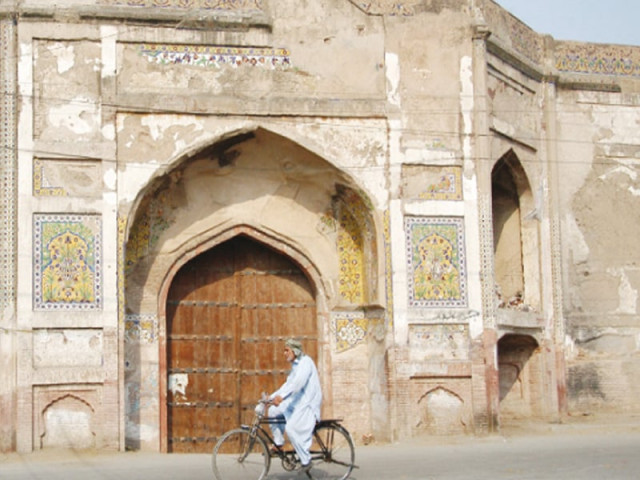Heritage and conservation: Poor restoration practices ‘ruin monuments’
US expert calls for legislation on funding, regular inspections.

Heritage and conservation: Poor restoration practices ‘ruin monuments’
Flawed restoration projects in the city are a threat to the country’s heritage. The concern was expressed at a seminar arranged by the Punjab University’s Department of Archaeology on Wednesday.
Participants at the seminar, Heritage Preservation in Pakistan- International Principles and Practices, discussed the collective responsibility to preserve social heritage.
Prof Rafique Mughal of the Archaeology and Heritage Management at Boston University, USA, said war was the major cause of destruction of heritage. Tourism, natural disasters and unplanned construction followed.
The seminar focused on ‘flawed’ restoration projects for World Heritage sites like Lahore Fort and Shalimar Gardens. Dr Mughal, an expert in preservation and management of monuments, warned that ignorant restoration efforts destroyed the originality of monuments. He urged for thorough research before starting restoration work.
“Management of cultural heritage requires the relevant institutions to introduce laws and rules to govern the preservation of built heritage. This requires proper funding, regular inspection of the site and involvement of the local people,” he said.
Dr Mughal pointed out the restoration work at Jehangir’s Tomb in 2004 and lauded the efforts of the archaeologists who had restored the tomb and maintained its originality. He showed slides of the restoration work at the tomb.
Later, while talking to The Express Tribune, Dr Mughal said that there was a need for extensive educational programmes on heritage. Currently, heritage is taught only at the National College of Arts and at the University of Engineering and Technology, Lahore.
Dr Mughal said that heritage could only be preserved if people owned it.
He recalled that in 1994 some NCA students formed a human chain around Tollinton Market on The Mall to thwart its authorised destruction. “The incident reflected the passion of people who held strong to their roots,” he said. All buildings which are 75 years old are protected by the Antiquities Act amended in 1992. The Tollin’ton Market was eventually saved through renovation and now hosts exhibitions including thesis work by students.
Dr Mughal said he hoped that media would highlight the issue and dedicate significant resources to the cause. He said that public institutions, professionals, students and the citizens should work together to preserve culture and heritage.
The seminar was attended by PU faculty and students.
Agreeing to preserve
Pakistan is a signatory to the United Nations Educational, Scientific and Cultural Organisation (UNESCO) convention of preserving heritage. The treaty, called the Convention Concerning the Protection of the World Cultural and Natural Heritage, was adopted in 1972.
Published in The Express Tribune, July 28th, 2011.


















COMMENTS
Comments are moderated and generally will be posted if they are on-topic and not abusive.
For more information, please see our Comments FAQ